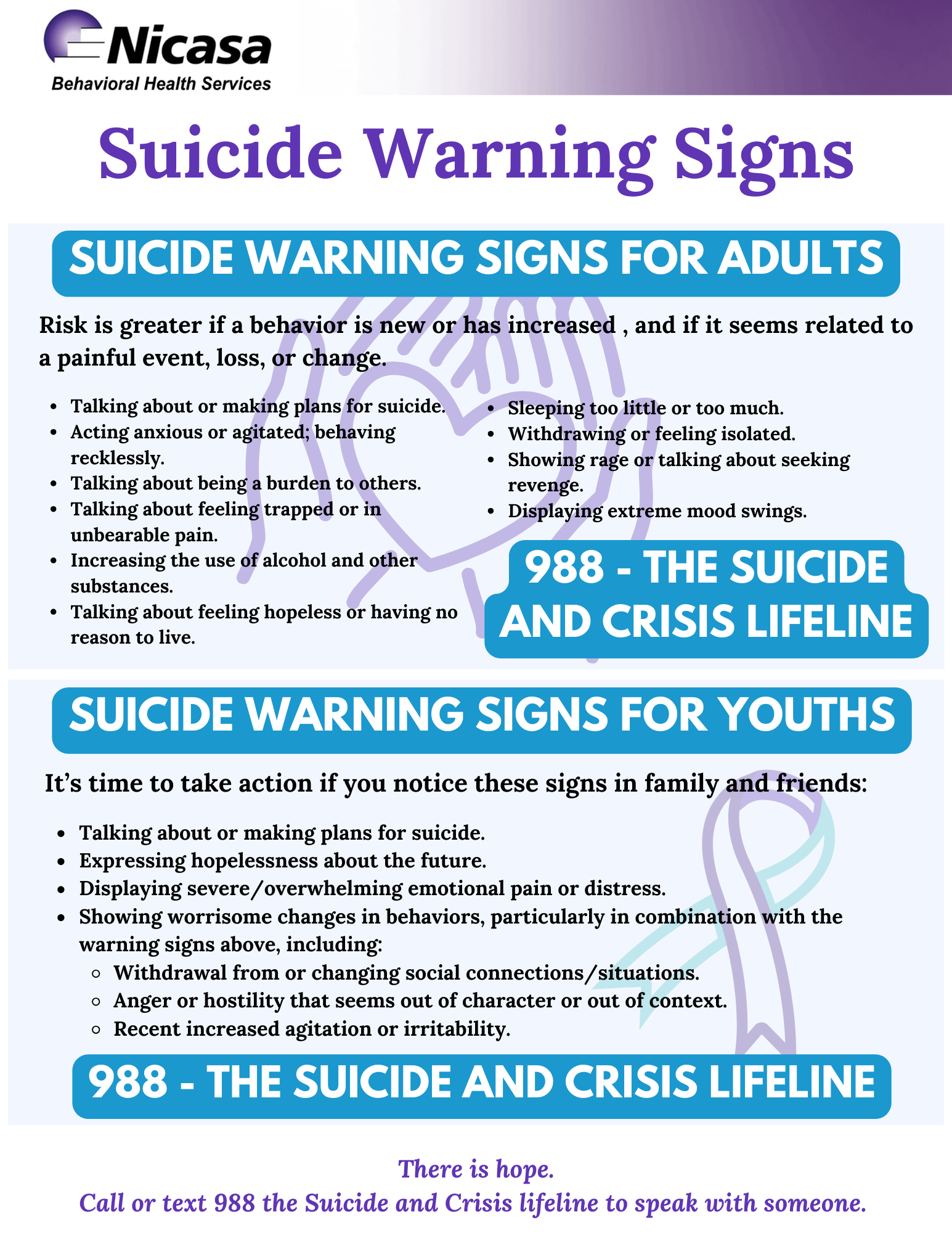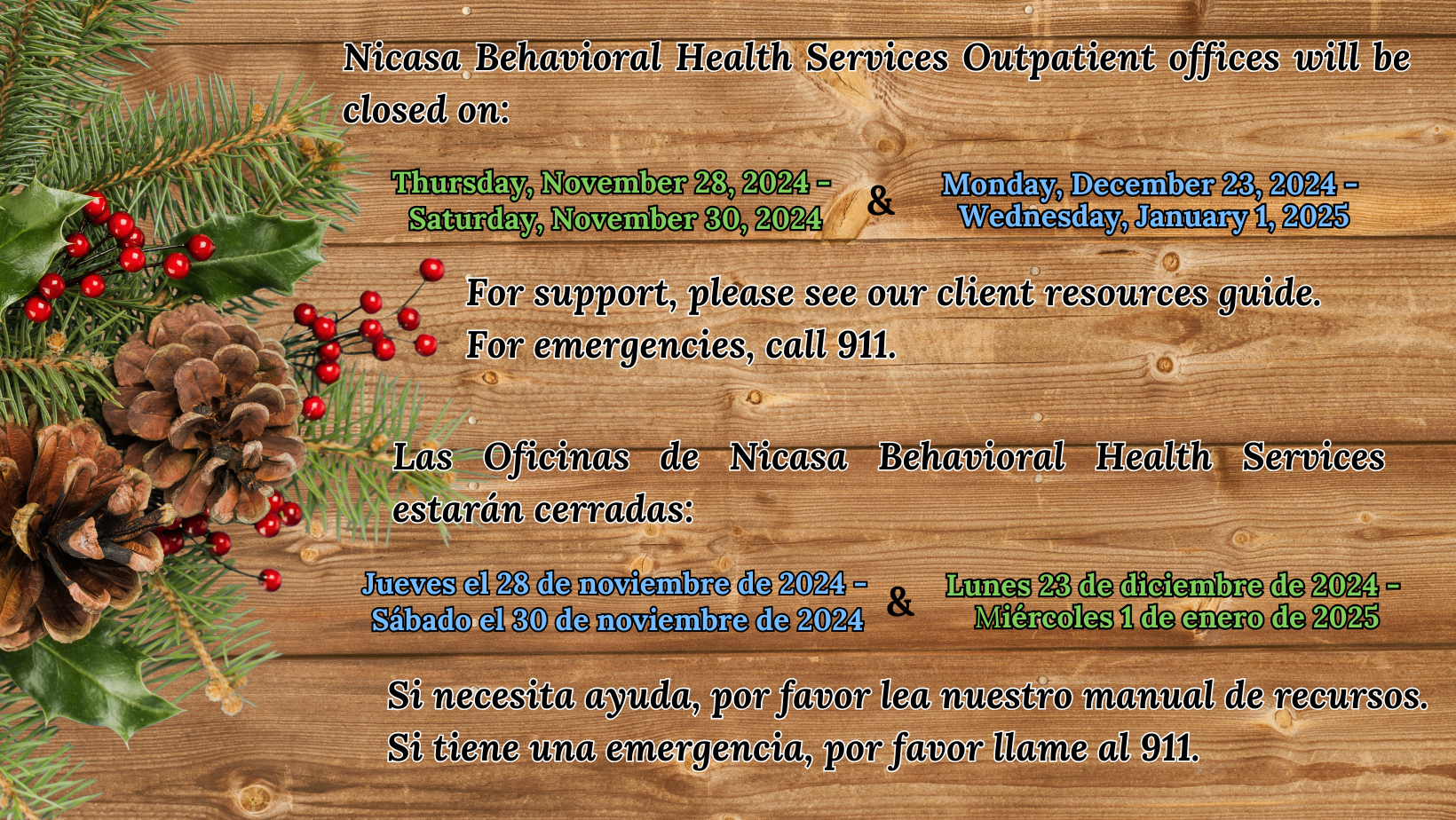September is an important month for Nicasa. September is a call for action, awareness, and hope. We recognize both National Recovery Month and Suicide Prevention Awareness Month. While these topics can be difficult to discuss, these are incredibly important conversations that could save a life.
It is unfortunate that substance use, mental health challenges, and suicidal ideation are stigmatized so heavily in our community. Often many suffer through these symptoms and experiences in silence as they worry that by sharing their concerns with someone else will cause them to be perceived as a burden, or permanently brand them in a way that will affect their livelihoods and personal fulfillment for the rest of their lives.
Nicasa Behavioral Health Services wants to remind everyone, you are never defined by one moment. There are options and treatments. There is a way for recovery to work for everyone. There is hope, and there is help always available for everyone.
Many people often wonder how they can help others living with these challenges. One place to start is with compassionate communication. It is always important to be mindful of our words. Often, these have a long-lasting impact on someone’s mental health, rather than just the heat of the moment conversation. One important way to promote a positive conversation in these situations is by using language that shows empathy and compassion towards individuals who might be experiencing challenges.
 Avoid Using “Clean” and “Dirty” to Refer to Individuals’ Recovery Status.
Avoid Using “Clean” and “Dirty” to Refer to Individuals’ Recovery Status.
Calling someone “dirty” for a substance use challenge is not only rude, but often refers to their character as being less than, their substance use disorder is a permanent mark on their morality and has nothing to do with personal hygiene—or access to basic necessities. Treating a substance use disorder is often less about actual substance and more about connecting meanings to behaviors, finding positive coping skills to deal with trauma and hardship, and working through a complex neurological and chemical response system in their bodies so they can lead healthier lives.
Avoid Using “Crazy,” “Nuts,” “Junkie,” “Addict,” “User,” and Other Derogatory Names.
No one wants to be told they are crazy. No one chooses to have a mental illness or substance use disorder. Using words like this to describe people only further puts them down, removes their humanity, and places the blame back onto the individual who is battling an illness. A better choice would be to recognize their challenges as the medical condition it is and refer to the individual as “a person living with a substance use disorder,” or “a person living with [mental health condition].”
Don’t Be Afraid to Talk About Recovery and Suicide.
There is a misconception that talking about recovery or suicide could have the opposite effect for an individual. That these conversations could trigger a crisis that could lead to a return to substance use or suicide attempt. By not talking about these experiences, often individuals feel more afraid and isolated by what they are going through, assuming they are alone. By talking about these topics, it shines a positive light on these difficult topics while showing those who might be experiencing suicidal ideations or on the verge of a mental health crisis, that community, supportive resources, and lifelines are all around them. You may not always understand exactly what that individual is going through, but you can be there to listen without judgement—often that is the best form of support.

If you, or a loved one, is experiencing concerns with substance use, mental health, and/or other challenges, please contact Nicasa Behavioral Health Services at 847-546-6450 or email info@nicasa.org.
An immediate national support line is always available. Call, text, chat 988 for the Suicide and Crisis Lifeline. This like is available 24/7/365, free of charge, multilingual, and 100% confidential. Please visit https://988lifeline.org/ for more information on this lifesaving service.



